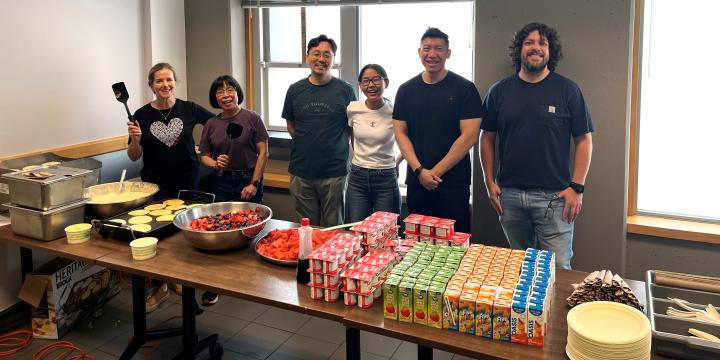
Public awareness around the opioid crisis and its effect on communities is growing, and so is the number of overdoses and drug-related deaths in Metro Vancouver and across the country. Health Canada has deemed the opioid crisis a public health emergency, as it has lowered the national average life expectancy while the death toll continues to climb, reaching over 9,000 since 2016.
How did we get here?
There are several complex factors that have created this crisis.
In the 1990s, pharmaceutical companies advertised prescription opioids as less addictive than they were. This led to their over-prescription by doctors, followed by an increase in the number of cases of opioid addiction. A government crackdown on prescription opioids pushed users to synthetic, and potentially lethal, illicit drugs.
The increase in toxicity of illegal drugs is another factor. The presence of powerful illegal substances such as fentanyl, a drug 50-100 times more potent than morphine, has entered illicit drug supplies. Of accidental opioid-related deaths in 2018, 72% involved fentanyl.
Who is being affected?
In Canada in 2018, 2,066 people died due to the opioid crisis, with 754, or 36%, of deaths occurring in British Columbia. Indigenous community members are disproportionately affected with 14% of all overdoses in the province experienced by First Nations people. However, the impacts of opioid overdose and death are widespread, reaching communities across the country as well as Metro Vancouver.
How is the YWCA responding?
The YWCA is working to provide a judgment-free, supportive environment for those affected by the opioid crisis. At YWCA Crabtree Corner, program participants and staff are seeing recovery relapses, children being orphaned and families experiencing unfathomable loss.
To provide support, participants in the Aboriginal Infant Development Program, a key program for Indigenous families, have been led through grief writing groups, which use writing as a tool to cope with suffering from loss.
Across the organization, the YWCA is working to make sure that senior leadership, board members and staff have an awareness of how to support those using substances and how to take action in the event of an overdose. Training to administer naloxone, a medication that quickly reverses the effects of an overdose from opioids, has been carried out to YWCA staff.
YWCA leadership will continue to make educated decisions to further support efforts on risk mitigation and to find solutions in response to the opioid crisis and its effects for those in the YWCA community.
Photo by Aditya Chinchure on Unsplash.

